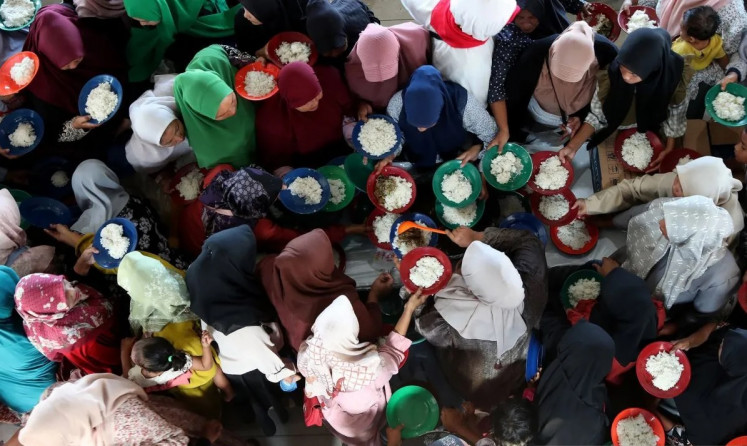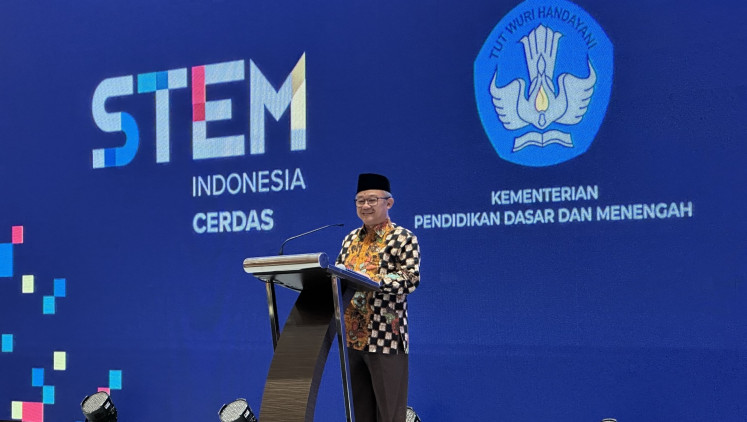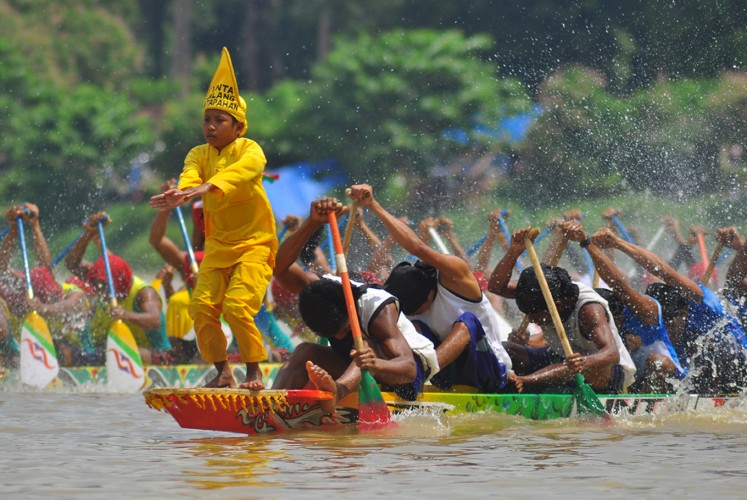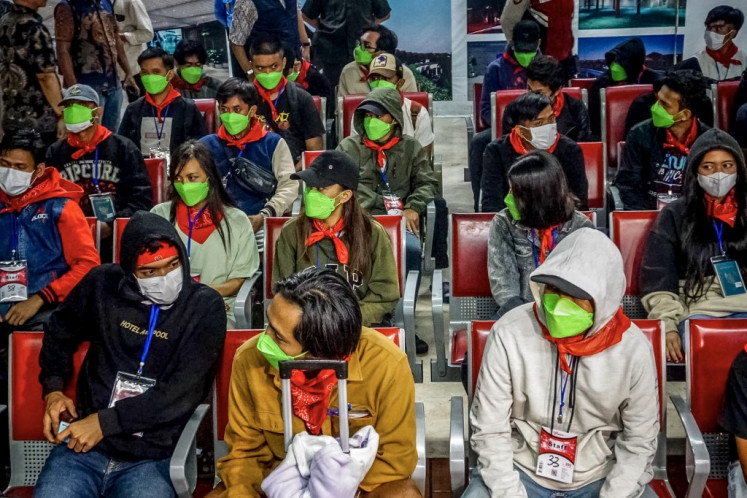Popular Reads
Top Results
Can't find what you're looking for?
View all search resultsPopular Reads
Top Results
Can't find what you're looking for?
View all search resultsWhy excluding Russia from G20 is not the best course of action
This demand has put host country Indonesia in hot water; since the beginning of the military invasion, Indonesia has taken a soft stance on Russia.
Change text size
Gift Premium Articles
to Anyone

As the war intensifies between Russia and Ukraine, United States President Joe Biden and Australian Prime Minister Scott Morrison have demanded Russia be excluded from the Group of Twenty (G20) annual meeting in Bali in November this year.
This demand has put host country Indonesia in hot water; since the beginning of the military invasion, Indonesia has taken a soft stance on Russia.
Until now, Indonesia has not imposed any sanctions against Russia, nor is it likely to do so. The country has clearly and firmly announced its position: to invite all G20 country leaders, with no exception, to come to Bali for the meeting.
Despite mounting criticisms, we believe Indonesia has taken the right decision to still invite Russia and resist demands from the US and its allies; excluding Russia from the G20 forum does not appear the best course of action. Here is why.
Russia has been expelled before
This will not be first time for Russia to be expelled from an international forum. The Group of Eight (G8) – now the G7 – expelled Russia from the forum over its annexation of Crimea.
In 2014, Russia took over the Crimean peninsula from Ukraine with Putin saying this was to protect the well-being of eastern Ukrainian citizens. This stirred global condemnation, Russia was hit with economic sanctions and subsequently removed from the G8.
These sanctions apparently did not deter Russia; Crimea remains under its control.
Russia doesn’t seem to be bothered about violating international law.
Violating international law typically leads to two types of sanctions: direct sanctions (such as economic sanctions) and reputational sanctions (targeting the reputation of the offender).
Exclusion from the G20 would mostly be a reputational sanction for Russia, not a direct sanction, as the country has been mostly cut off from the global economy anyway.
Any exclusion from the G20 would only function to further deteriorate Russia’s already tarnished global reputation, and will only have limited economic impact. While direct and reputational sanctions may be useful to deter potential offenders, they are less useful for punishing repeat offenders, particularly if they have proven to be ineffective in the past.
Like employing economic sanctions (which tends to be unsuccessful), expelling Russia from the G20 is merely doing the same thing over again but expecting different results.
Furthermore, since the G20 is a forum, not an international organisation, it has no specific regulations regarding formal membership.
The expulsion of a member state needs to be collectively agreed by all members. Thus, it may be difficult to expel Russia from the forum considering China, India and South Africa’s continued soft stance on Russia.
Forcing Russia’s exclusion could threaten the group’s harmony.
Where does Indonesia stand?
As host of the G20 summit this year, the Indonesian government has decided to still invite President Putin and has said it would maintain impartiality. This may come as a surprise given Indonesia’s disapproval of military action in Ukraine and its support for the UN General Assembly’s resolution for the withdrawal of Russian troops.
However, Indonesia’s disapproval of Russia’s actions does not mean Indonesia supports the position of the Western nations. Rather, it shows Indonesia has been consistent to implement its “free and active foreign policy”. Free means Indonesia is independent and does not side with any world powers, while active means Indonesia would take the initiative in a peace settlement.
This is a high-level task, and it is the responsibility of President Joko “Jokowi” Widodo to reach out to world leaders from both camps and convince them of Indonesia’s impartial position.
Indonesia has experience as a regional facilitator and mediator in Southeast Asian conflicts and can use this expertise to mediate the group’s polarisation.
Even if Indonesia cannot manage to handle this polarisation by November, it can still offer a side-line meeting for Russia-Ukraine peace talks during the summit, as President Biden has suggested.
G20 as Russia’s way out
In a way, the G20 forum can function as Russia’s way out to avoid prolonging the war, without losing face.
Russia has continuously claimed this war as a special operation to demilitarise and de-Nazify Ukraine. Demilitarisation of Ukraine may be plausible, but de-Nazification seems a bit far-fetched; Ukraine is not a fully democratic country, but it is hardly an autocratic one.
Russia is in a tight spot and pushing Putin to the limit may not end well. Russia is stuck in a dilemma of continuing the war, with human loss, material damage and economic recession. Yet, admitting defeat can also mean the weakening – and perhaps even downfall – of Putin’s regime. Neither scenario is favourable for him.
Therefore, President Putin can use the G20 forum to hold meetings with other world leaders. This could be a gesture to the world that he wants to end the war and focus on more crucial issues, such as economic recovery and climate change.
***
Erza Killian is a senior lecturer in International Relations at the Brawijaya University and Aswin Ariyanto Azis is the head of department of Politics, Government, and International Relations of the Brawijaya University.
This article is republished from The Conversation under a Creative Commons license.











